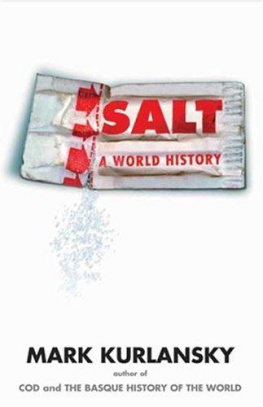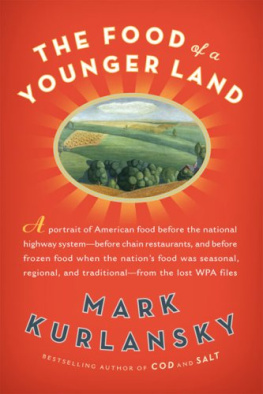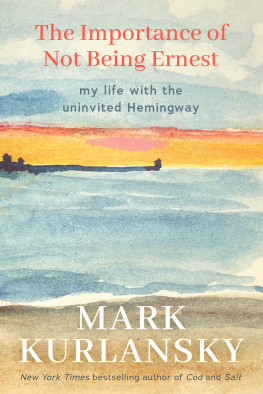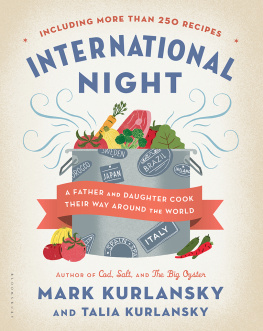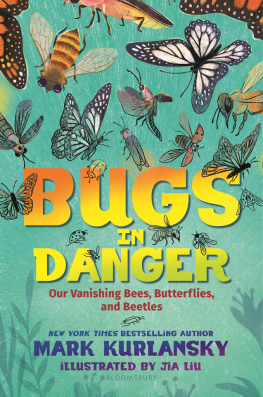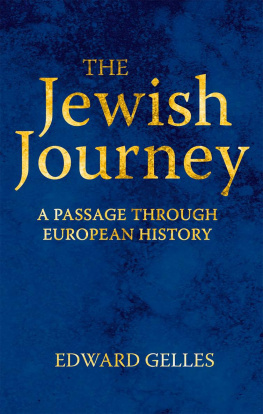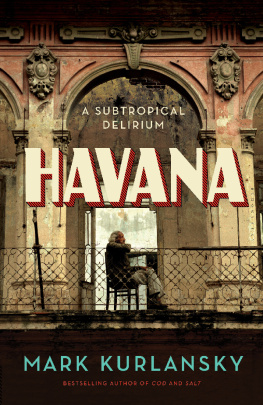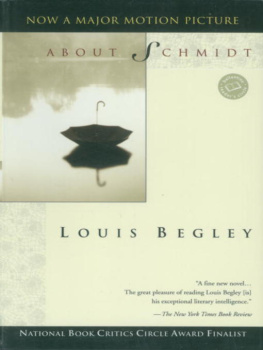Mark Kurlansky - A Chosen Few: The Resurrection of European Jewry (Ballantine Readers Circle)
Here you can read online Mark Kurlansky - A Chosen Few: The Resurrection of European Jewry (Ballantine Readers Circle) full text of the book (entire story) in english for free. Download pdf and epub, get meaning, cover and reviews about this ebook. year: 2002, publisher: Ballantine Books, genre: Art. Description of the work, (preface) as well as reviews are available. Best literature library LitArk.com created for fans of good reading and offers a wide selection of genres:
Romance novel
Science fiction
Adventure
Detective
Science
History
Home and family
Prose
Art
Politics
Computer
Non-fiction
Religion
Business
Children
Humor
Choose a favorite category and find really read worthwhile books. Enjoy immersion in the world of imagination, feel the emotions of the characters or learn something new for yourself, make an fascinating discovery.

- Book:A Chosen Few: The Resurrection of European Jewry (Ballantine Readers Circle)
- Author:
- Publisher:Ballantine Books
- Genre:
- Year:2002
- Rating:4 / 5
- Favourites:Add to favourites
- Your mark:
- 80
- 1
- 2
- 3
- 4
- 5
A Chosen Few: The Resurrection of European Jewry (Ballantine Readers Circle): summary, description and annotation
We offer to read an annotation, description, summary or preface (depends on what the author of the book "A Chosen Few: The Resurrection of European Jewry (Ballantine Readers Circle)" wrote himself). If you haven't found the necessary information about the book — write in the comments, we will try to find it.
A Chosen Few: The Resurrection of European Jewry (Ballantine Readers Circle) — read online for free the complete book (whole text) full work
Below is the text of the book, divided by pages. System saving the place of the last page read, allows you to conveniently read the book "A Chosen Few: The Resurrection of European Jewry (Ballantine Readers Circle)" online for free, without having to search again every time where you left off. Put a bookmark, and you can go to the page where you finished reading at any time.
Font size:
Interval:
Bookmark:
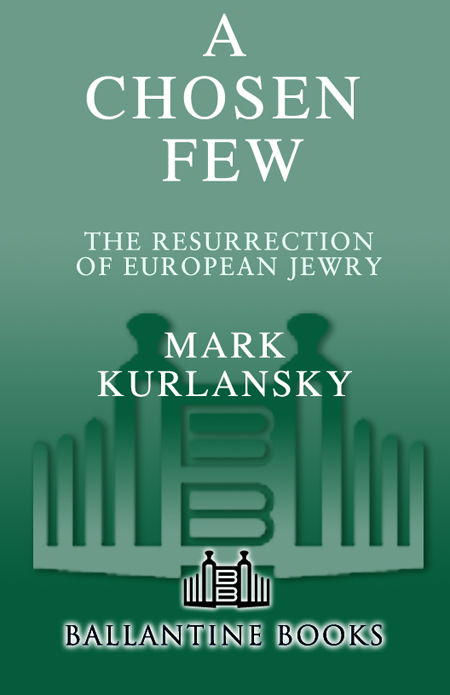
This book is a fascinating review of the changing life of Jews and Judaism and Europeans in general since the Second World War.
Rocky Mountain News
Kurlansky does an astonishingly informative job here, covering a vast array of individuals and communities throughout Europe, chronicling the economic, political, and cultural trends that reshaped and often played havoc with their lives and destinies. His descriptions of life in Antwerp, Paris, Budapest, and Amsterdam are superb, while his chapters on Poland are among the best I've read.
S USAN M IRON Forward
A richly descriptive and insightful survey of post-Holocaust European Jewry With a novelist's eye for irony and description, [Kurlansky] offers many moments of transcendence and humor; entertaining culture clashes between communists and capitalists, religious and secular, Zionists and diasporists. A lively, penetrating follow-up to Holocaust readings that speaks volumes about the resiliency of the Jewish people.
Kirkus Reviews
Kurlansky's collection of case histories unfolds like a novel.
The Jewish Advocate
Acclaim for the work of Mark Kurlansky
Salt
An immensely entertaining read Kurlansky continues to prove himself remarkably adept at taking a most unlikely candidate and telling its tale with epic grandeur. Salt reveals all the hidden drama of its seemingly pedestrian subject. There is even a kind of poetry in the very chemistry of salt.
Los Angeles Times Book Review
Bright writing and, most gratifyingly, an enveloping narrative It is Kurlansky's neat trick to be both encyclopedic and diverting, to leave no grain unturned as he ties one intriguing particular to another, through time and space, keeping the reader's attention.
San Francisco Chronicle
Mark Kurlansky is a writer worth his salt. [He] always manages to bring out the sharpest flavors in his subject matter. For readers thirsty for well-told history, Salt hits the spot.
Minneapolis Star Tribune
Throughout his engaging, well-researched history, Kurlansky sprinkles witty asides and amusing anecdotes. A piquant blend of the historic, political, commercial, scientific, and culinary, the book is sure to entertain as well as educate.
Publishers Weekly
Cod
[An] eminently readable book History filtered through the gills of the fish trade.
The New York Times Book Review
[A] fascinating study of the interrelationship between humans and fish.
The Philadelphia Inquirer
[A] naturalist triumph, a smoothly written, beautifully designed book Kurlansky's steady tone, somewhere between Captains Courageous and the mourner's Kaddish, is perfect.
Boston magazine
[An] engaging history Highly recommended.
Library Journal (starred review)
The Basque History of the World
Thoroughly engaging Kurlansky writes history with a quirky verve that makes his books as entertaining as they are enlightening.
The Boston Globe
A rich mix of mythos and reportage, history and anecdote, literature and etymology, culinary lore and recipes, this history may be the most important English work on Iberia since Robert Hughes Barcelona
Miami Herald
[A] lively, anecdotal, all-encompassing history of Basque ingenuity and achievement.
The Atlantic Monthly
Kurlansky's book makes for highly enjoyable history, food, and travel reading.
The Washington Times
Other Books by Mark Kurlansky
Salt: A World History
The Basque History of the World
Cod: A Biography of the Fish that Changed the World
A Continent of Islands: Searching for the Caribbean Destiny
The White Man in the Tree and Other Stories (fiction)
The Cod's Tale (for children)
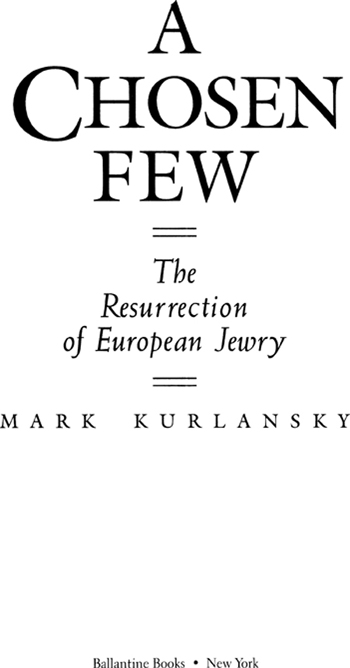
To L ISA B ETH
If God lets me live,1 shall achieve more than my mother ever did, I shall not remain insignificant, I shall work in the world for people.
A NNE F RANK'S diary, April 11, 1944
Solange ed Juden gibt, wird es immer Nazis geben. (As long as there are Jews there will always be Nazis.)
A Jew is a citizen of no country except Israel.
Waarom leefik? (Why am I alive?)
three of the comments written in the guest book at the Anne Frank house in Amsterdam
PART ONE
T HE B READ Y EARS
PART TWO
B ROYGEZ IN THE C OLD W AR
PART THREE
68
PART FOUR
R ITE OF P ASSAGE
PART FIVE
T HE S ILENCE
PART SIX
E UROPE , N EW A GAIN

if they do it for no reason
there's no motive
if they all do it
no one knows who has done it.
H ENRYK G RYNBERG , The Perfect Crime; 1989
Anti-Semitism has proven to be one of the most enduring concepts in European civilization. In a 1927 book called The Wandering Jew about the struggles of poor eastern European Jews, Viennese Jewish novelist Joseph Roth concluded that anti-Semitism would vanish from the world, ended by the Soviet Union. He wrote of anti-Semitism, In the new Russia, it remains a disgrace. What will ultimately kill it off is public shame. He noted virulent outbursts in Russia but dismissed them as the death struggles of dinosaurs resisting the inevitable future.
Roth even speculated that If this process continues, the age of Zionism will have passed, along with the age of anti-Semitism and perhaps even that of Judaism itself.
Today the Soviet Union has been gone for a decade but anti-Semitism is still here. So for that matter, is Judaism. The Jewish questionI have never been certain what the question isthat Roth predicted would be put to rest with Russian leadership, has endured.
The lesson to be learned from Roth, aside from a warning to writers not to publish predictions in books, is that both Judaism and anti-Semitism have deep and permanent roots in Europe. Though Judaism is a less European idea than anti-Semitism, for many Jews, Jewish culture is Europeanor was.
Because of the Holocaust, Europe is no longer the most Jewish continent. It may have remained the most anti-Semitic, though Africa and Asia, with their Muslim populations are certainly vying for the title. It is difficult to be certain because anti-Semitism is more difficult to quantify than Judaism. As the nations of the former Soviet bloc struggle for acceptance in the Westadmission into Western clubs such as NATO and the European Union Jewish organizations such as the World Jewish Congress have urged that progress towards democracy in these nations be measured by the way they are treating their Jews. This is not as skewed a perspective as it at first sounds. Anti-Semitism, whether in Hungary, Germany, or France, has usually been tied to undemocratic movements. The growth of anti-Semitism in France, from the Dreyfus case to World War II collaboration, was tied to monarchists, fascists, and other groups that did not support republicanism. The Soviet Union was in principle opposed to anti-Semitism, and even outlawed its outward manifestations. But as that nation grew increasingly repressive, it also became increasingly anti-Semitic. The anti-zionist campaign in Poland in the late 1960s was the precursor to general repression.
Font size:
Interval:
Bookmark:
Similar books «A Chosen Few: The Resurrection of European Jewry (Ballantine Readers Circle)»
Look at similar books to A Chosen Few: The Resurrection of European Jewry (Ballantine Readers Circle). We have selected literature similar in name and meaning in the hope of providing readers with more options to find new, interesting, not yet read works.
Discussion, reviews of the book A Chosen Few: The Resurrection of European Jewry (Ballantine Readers Circle) and just readers' own opinions. Leave your comments, write what you think about the work, its meaning or the main characters. Specify what exactly you liked and what you didn't like, and why you think so.


